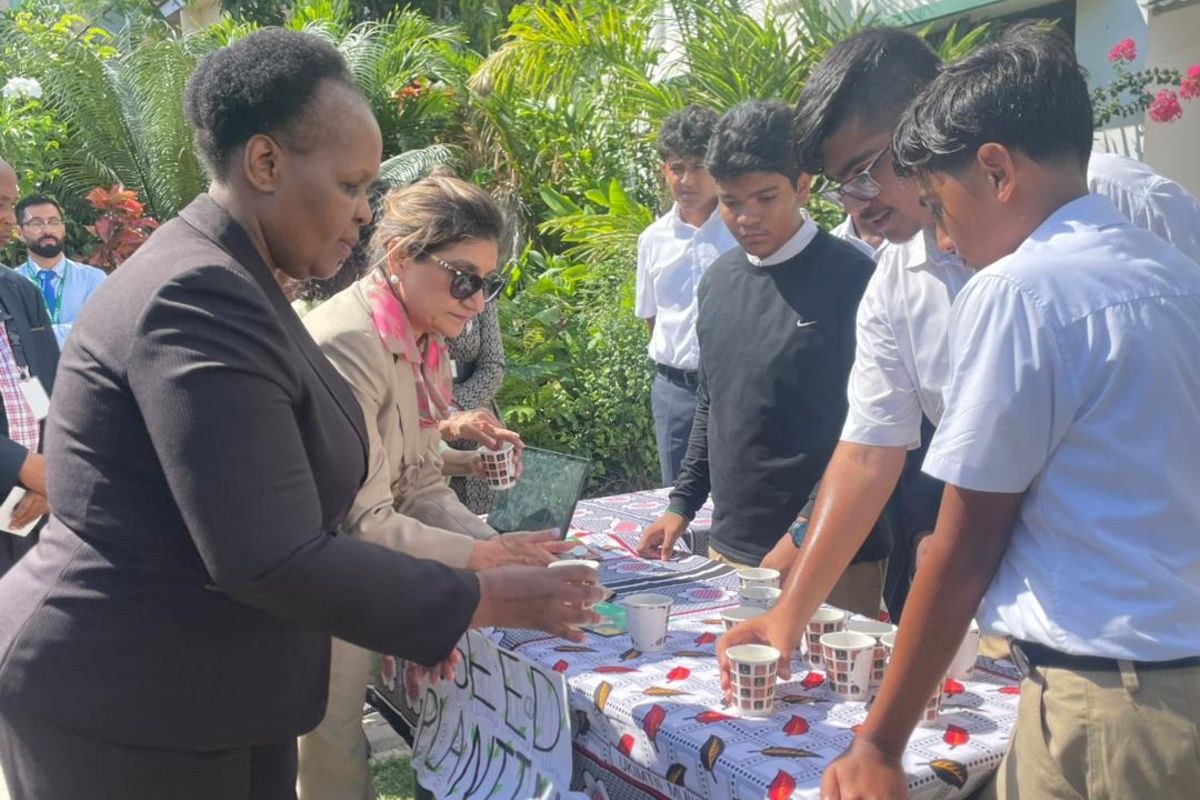Dar es Salaam. Walimu wa shule za awali, msingi na sekondari nchini Tanzania watapata mafunzo maalumu kuhusu utunzaji wa mazingira na mabadiliko ya tabianchi katika masomo yao ya darasani. Hii ni sehemu ya maboresho ya mitaala ya mwaka 2023 yenye lengo la kuingiza masuala haya kwenye mitalaa ya shule.
Hayo yameelezwa katika maonyesho ya programu ya elimu inayohusu mazingira yaliyofanywa na wanafunzi wa shule ya Aga Khan, iliyo chini ya Taasisi ya Elimu ya Aga Khan Tanzania (AKEST).
Akizungumza baada ya kukagua maonyesho hayo, Mkurugenzi Mkuu wa Taasisi ya Elimu Tanzania (TET), Dk Anneth Komba amesema kwamba lengo la hatua hii ni kuhakikisha wanafunzi nchini wanapata elimu bora kuhusu utunzaji wa mazingira.
“Tutachukua uzoefu wa wenzetu na tutaweka katika mafunzo ya walimu, kuhakikisha kwamba wanafunzi nchini Tanzania wanafundishwa jinsi ya kuhifadhi mazingira yetu, jinsi ya kuepuka uchafuzi wa hali ya hewa, na kuhakikisha mazingira yetu yanakuwa safi,” amesema Dk Komba.
Dk Komba ameongeza kuwa sababu kuu ya kuanza na watoto ni kwa sababu wanachangia kwa kiasi kikubwa katika kutoa elimu kwa jamii.
“Ni muhimu kuanza na watoto kwa sababu wanachukua elimu hii na kwenda nayo nyumbani kwa wazazi wao. Hii ni njia mojawapo ya kuelimisha jamii kwa ujumla, kwani mtoto atakapokuwa na elimu hii, ataileta nyumbani na jamii inayomzunguka itanufaika pia,” amesisitiza Dk Komba.
Kuhusu upatikanaji wa elimu hii katika shule nyingine nchini, Dk Komba amesema watatoa mafunzo kwa walimu ili kuwawezesha kuingiza elimu ya mazingira katika ufundishaji na ujifunzaji wa kila somo.
“Nimefarijika sana kuona jinsi masomo yote, kuanzia hisabati hadi Kiswahili, yanavyojumuisha mambo ya utunzaji wa mazingira na kuelewa mabadiliko ya tabia nchi. Tunachukua uzoefu huu na kuutekeleza kulingana na mitaala,” ameongeza.
Kwa upande wake, Mkurugenzi Mkuu wa AKEST, Dk Shelina Walli, amesema wanajitahidi kuhakikisha wanatembea kuelekea dunia yenye kijani kibichi.
“Mfano mdogo wa kile utakachokiona ni jinsi tulivyoingiza elimu inayohusiana na ustawi katika kila somo kwa kila ngazi. Tumepanga mitaala kwa namna ambayo hatuongezi kazi kwa walimu, hatuleti miradi mipya, tunaboresha kile tulichonacho, ambacho tunaamini kimeandaliwa na TET, kupitia uchunguzi wao,” alisema Dk Walli.
Dk Walli ameongeza kuwa kuweka wanafunzi mbele ni kuwapa fursa ya kuongoza kwa mbinu nzuri.
“Kupitia wao, tutaendelea kujifunza zaidi kwa sababu watafanya utafiti na kuleta maarifa mapya ambayo shule itaweza kuyapeleka tena kwa walimu wetu katika ufundishaji na kujifunza. Hivyo tunawasikiliza, tunawaacha waongoze shughuli, na mara nyingi tunawaomba watufundishe,” amesema.
Amesema kuwa AKEST iki tayari kushirikiana na shule zote za wadau mbalimbali ili waweze kujifunza namna wanavyotekeleza mambo mbalimbali.
Source: mwananchi.co.tz














